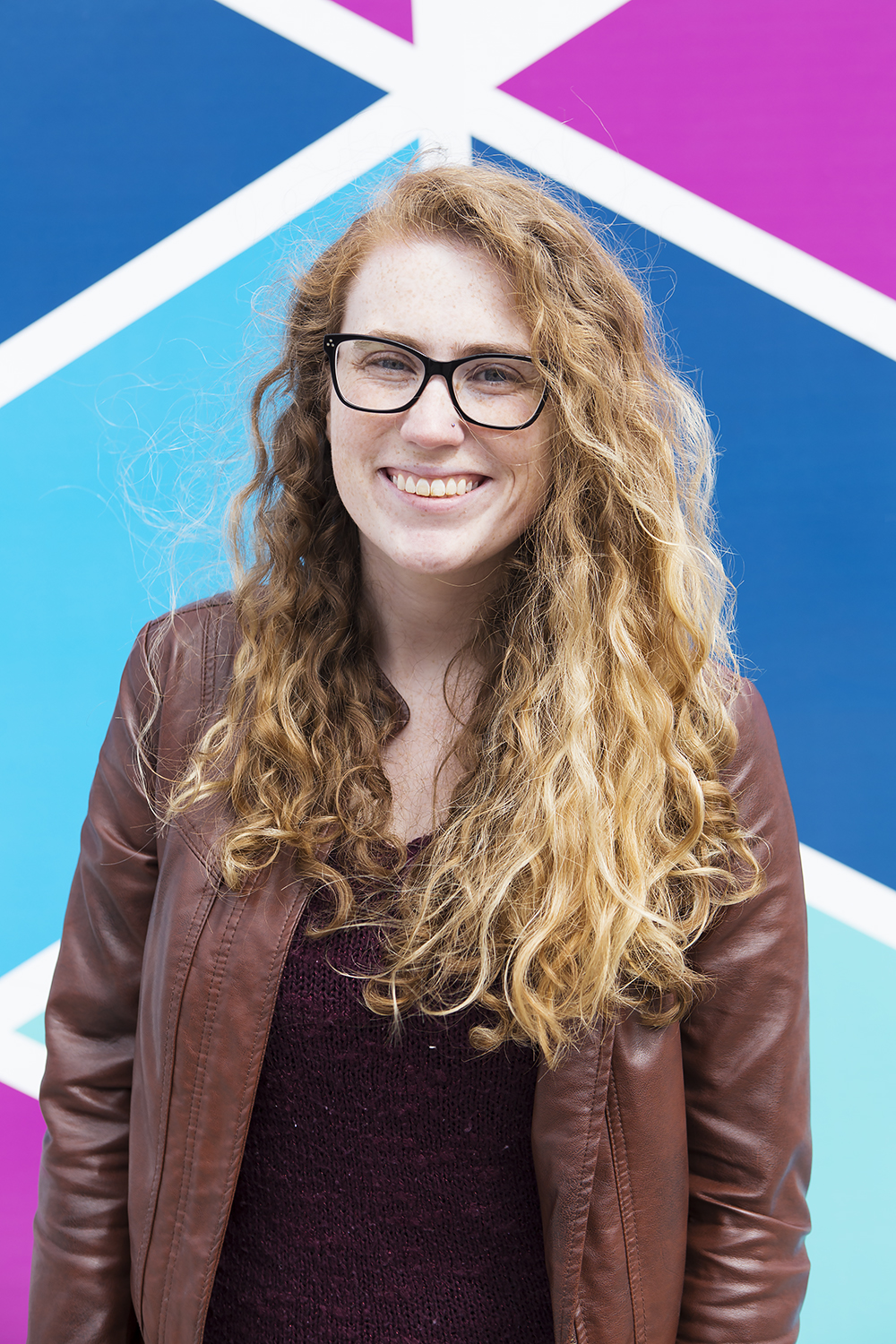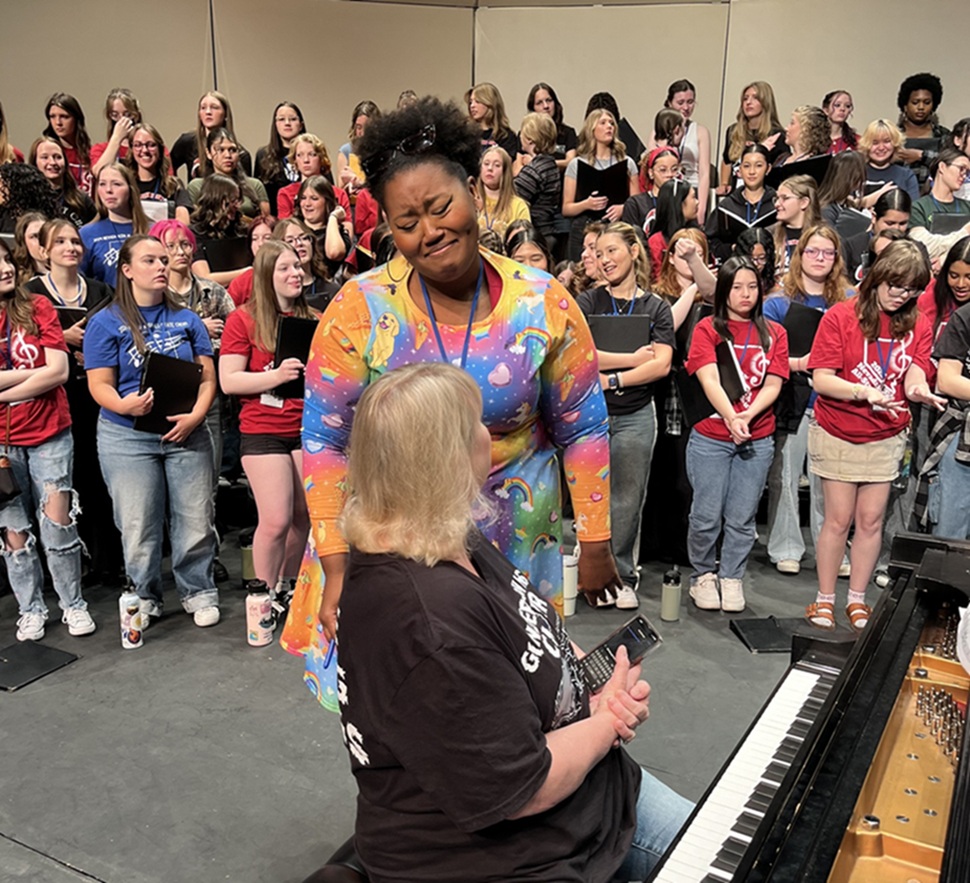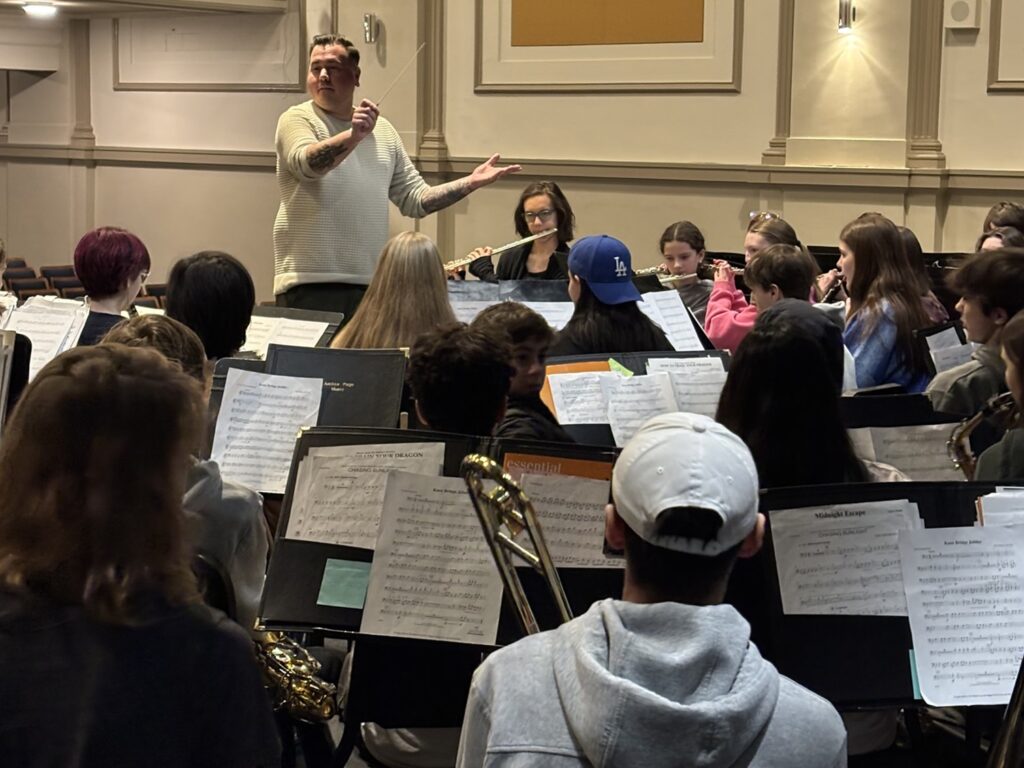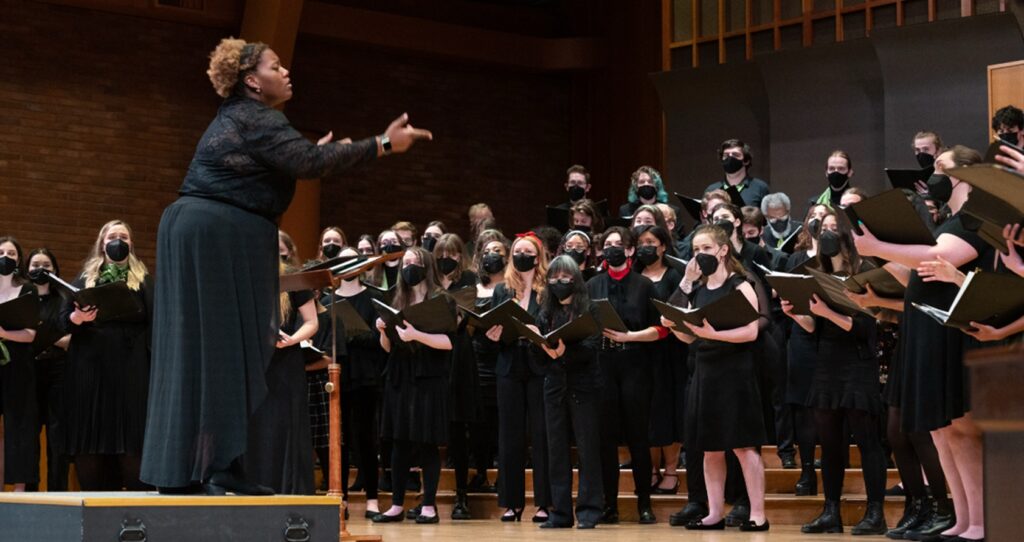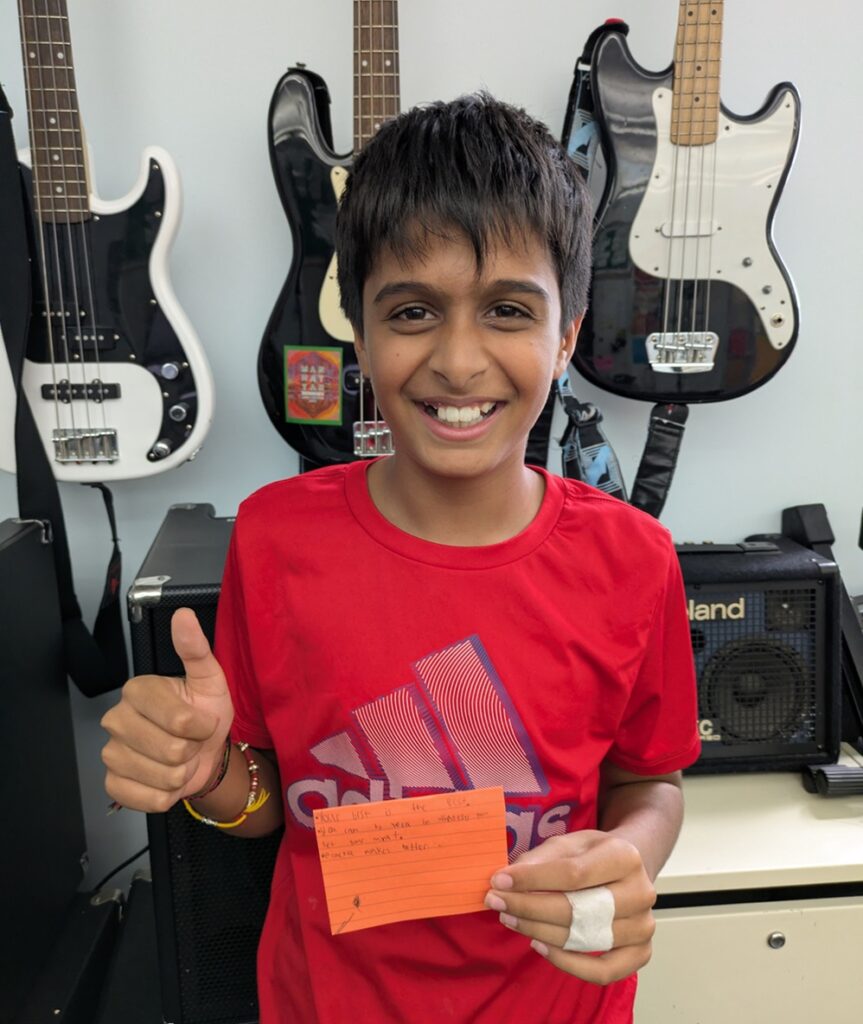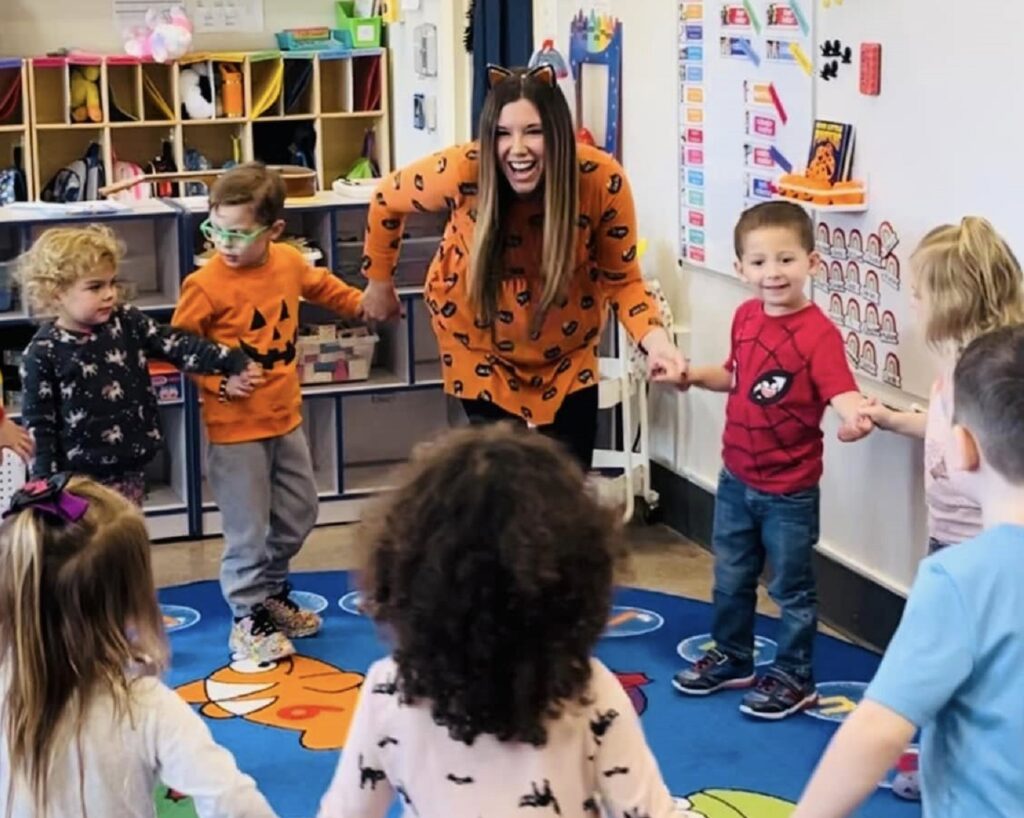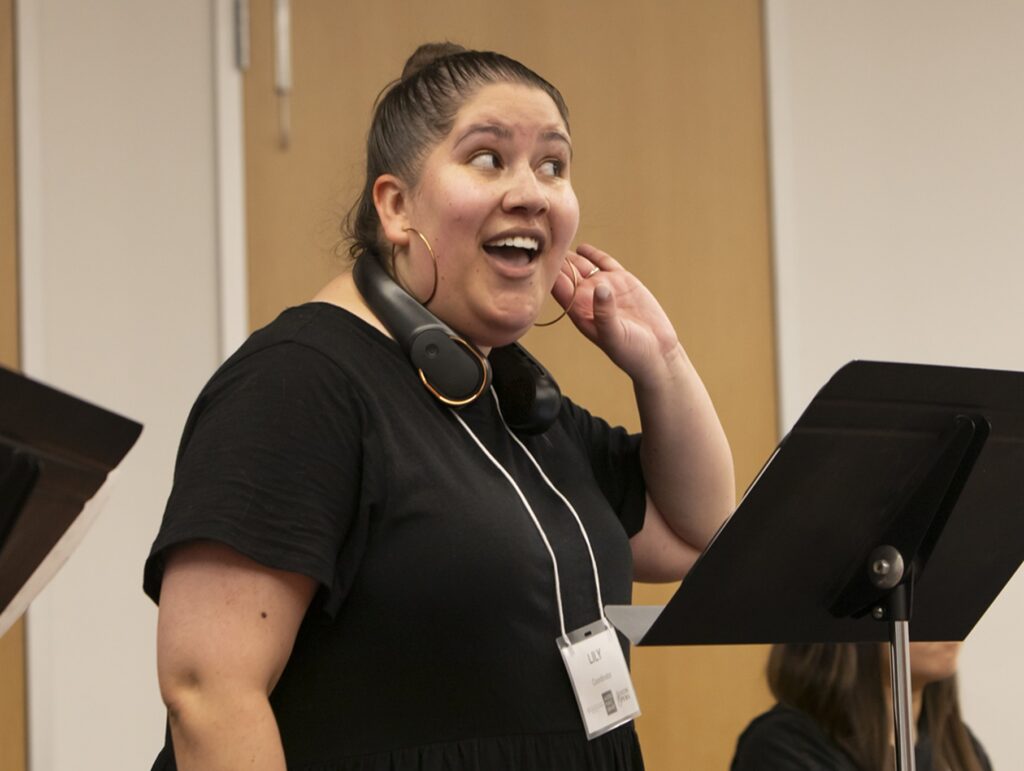Tagged Under:
ASU’s Popular Music Program Focuses on Access and Community
The three main goals in building the new program were an inclusive environment, an individualized approach and a collaborative community.
At the start of 2020, Arizona State University (ASU) scheduled Erin Barra, then an Associate Professor at Boston’s Berklee College of Music, to give a presentation as part of her job application. Barra was in consideration for the director role at ASU’s upcoming Popular Music Program, which was set to launch the following school year.
Barra was happy in her role at Berklee but couldn’t pass up the chance to lead a brand-new department. “It was the ultimate opportunity to build something from nothing,” she says.
With a flight scheduled, Barra felt prepared to give the presentation of a lifetime. Then, shortly before she was set to leave for Phoenix, the world shut down because of the COVID-19 pandemic.
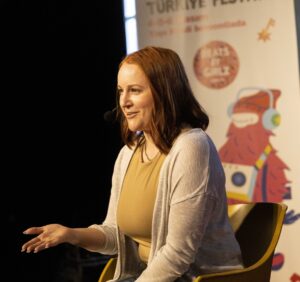
Thankfully, Barra had plenty of online teaching experience from working with Berklee Online, so she quickly adapted her presentation for Zoom. Several weeks later, she was offered the ASU role and faced another difficult choice: “I had to decide [whether] to move my family to Arizona, without ever having been there,” she says.
Realizing how much influence she could have on a new program ultimately motivated Barra to accept the job. “So much of academia is inertia; things have been happening a certain way for decades and changing it is insurmountable for most people,” she explains. “The fact that I was going to have a huge impact right away was incredibly alluring.”
After a cross-country move and adjusting to a new profession, Barra quickly realized that she made the right choice. “It was the best decision I’ve ever made in my career,” she says.
ASU’s Popular Music Program, which includes academic tracks for disciplines like songwriting, music technology, music business and more, has now completed five years of operation and graduated two groups of students, many of whom work in the music industry.
Barra attributes the program’s success to its inclusive environment, individualized approach for each student and collaborative community.
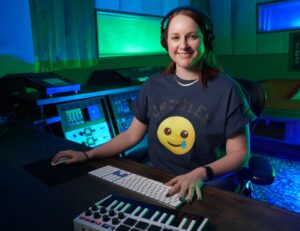
Building from the Ground Up
When Barra first prepared her presentation to interview for the director role in 2020, she decided to go all-out. “I had nothing to lose,” she says.
Because she already had a great job at Berklee, Barra didn’t feel the need to pander to her interviewers, instead she was brutally honest. “I put together what I thought was one of the most progressive visions for a popular music program,” she says. “I put my real thoughts down on paper and shared them in full transparency.”
To her surprise, ASU faculty were instantly open to her ideas. “I was shocked at how willing they were to do something different,” she says.
Barra’s goals for the new program focused on inclusivity. “I’m always talking about how we can make more inclusive spaces for people to learn,” she says. “As a woman in music technology, I’ve experienced what it’s like to be othered.”
While building a new program from the ground up, Barra and other faculty members worked on fostering inclusion through redefining musicianship. “A lot of schools have a very narrow idea of what constitutes preparedness for a college music degree,” she says. “At ASU, we have so many options. You don’t have to be an instrumentalist. You don’t have to have 10 years of private lessons.”
Instead, she explains, the admissions team measures each applicant’s qualifications on an individualized level. “We measure someone’s ability to succeed based on their musicianship: their ear, their rhythm and so many other ways,” she says. “We’re inclusive of digital musicians, traditional musicians, DJs, composers, writers, everyone. As long as you have the will to succeed and decent ears, you can come be with us.”
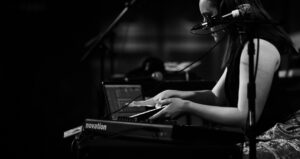
Choose Your Own Adventure
This individualized approach to music education begins with one-on-one interviews during admissions. “If they want to come in and study guitar, we’d watch them play guitar obviously, but we also assess melodic recall and rhythmic recall. We ask basic music theory stuff,” says Barra, who was recognized as a 2025 Yamaha “40 Under 40” educator. “We assess how far you can take somebody. We have conversations with them.”
The aim of these conversations is to determine each student’s individual goals, passions and areas of expertise. “If their musicianship is oriented in a different way, we have them walk us through their workflows,” Barra says. “We’re taking the time to sit down and figure out who these people are and what they want to do.”
Once students are accepted into the program, and they complete all prerequisite classes, they gain access to all equipment and technology, regardless of their area of study. “In many programs, there’s this demarcation between a technical field and a creative field, and only certain students get access to the full array of technology they’ll experience in their careers,” Barra says. “We democratized all technology. As long as you take the prerequisite courses, you can use it. It doesn’t matter if you’re an engineer or a songwriter.”
Another feature of the program is the variety of topics each student can study. “Musicians need to be a million things right now,” Barra says. “I created a program where they get to pick two or three areas where they want to specialize, so it’s just enough to be dangerous when you leave.”
All students take the same introductory classes, like music production fundamentals and music theory, to give everyone the same baseline experience. “”When they hit the third semester and beyond, they get to explore,” Barra says. “They really choose their own adventure, and it culminates in a year-long capstone where they pull it together in a big project.”
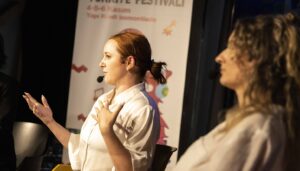
The Music Industry Career Conference
In its five years of operation, one of the Popular Music Program’s biggest accomplishments has been launching its yearly Music Industry Career Conference in Phoenix, which is open to both ASU students and the public.
As Barra explains, this conference takes advantage of Phoenix’s strategic location in relation to music industry hubs. “We have such prime access to the music industry because of where we are — we’re close to Los Angeles — and because of the economic and cultural development happening here in Phoenix,” Barra says. “We’re the fifth largest city in America right now. There’s so much opportunity to build in Phoenix.”
Music industry professionals from around the country fly in for the conference, which allows students to learn from them during panels and workshops, plus students can network with people in their desired career field. The 2025 conference featured producer Timbaland as a special guest.
Barra says that the conference has helped students get their foot in the door for internships and potential jobs after college. “We’re trying to connect to what happens once they leave ASU,” Barra says. “Once they graduate, they become part of the music industry in Phoenix, or wherever they decide to go.”
The conference isn’t beneficial only to students; it’s also a positive force for the entire community. “ASU often talks about how we’re accountable for the communities we’re embedded in,” Barra says. “We’re in the cultural hub of what’s happening in Phoenix right now.”
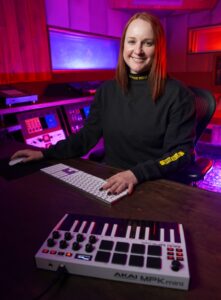
Community, Not Competition
A program focused so much on preparing passionate students for creative careers can easily veer into a competitive environment. However, Arizona State avoids this problem by intentionally fostering a collaborative community among the students. “One of our biggest assets is the culture of the program. Students talk about how the program is collaborative within the backdrop of community,” Barra says.
The secret ingredient to a successful collaborative environment is the faculty you hire, Barra says. “Everything trickles down from who’s sitting in front of a classroom,” she says. “That’s where the tone really gets set. We’ve done a lot of thoughtful hiring.”
Thoughtful hiring means seeking educators with a variety of different specializations and who reflect the vast diversity of the student body. “I hire people representative of the type of person I want the students to be: People who are involved in multiple things,” Barra says. “Our assistant director, Samuel Peña, is a DJ, a percussionist, a beat maker, and he does a lot of nonprofit stuff.”
For this musical creativity, community, diversity, inclusion and collaboration go hand in hand. “That’s the reality of the music industry,” Barra says. “Nothing gets done alone.”









